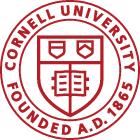- اخبار و مقالات
- Find usIDP AustraliaIDP BahrainIDP BangladeshIDP CambodiaIDP CanadaIDP ChinaIDP EgyptIDP GhanaIDP Hong KongIDP IndiaIDP IndonesiaIDP IranIDP JordanIDP KenyaIDP KoreaIDP KuwaitIDP LebanonIDP MalaysiaIDP MauritiusIDP Middle EastIDP NepalIDP New ZealandIDP NigeriaIDP OmanIDP PakistanIDP PhilippinesIDP Saudi ArabiaIDP SingaporeIDP Sri LankaIDP Taiwan, ChinaIDP ThailandIDP TurkeyIDP UAEIDP VietnamIDP Corporate
- Social
- فارسی
Location
United States
صلاحیت
Bachelor Degree
مدت زمان
8 Semester(s)
پذیرش بعدی
26 August 2025
COURSE_INFO
Your action plan
گام 1
Shortlist your courses
Choose the best three courses you’re most likely to pursue.
گام 2
Check your eligibility
Get an instant in-principle offer for courses with the IDP FastLane tag.
گام 3
Apply through IDP Live
Fill out the form once and use it to apply to multiple courses.





